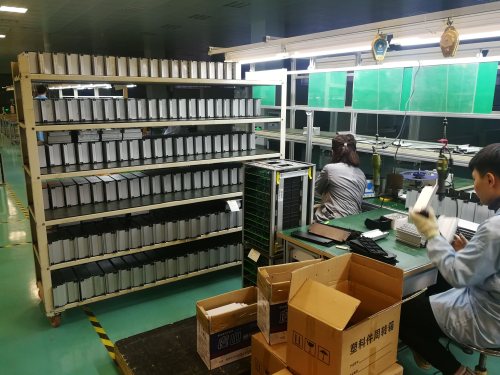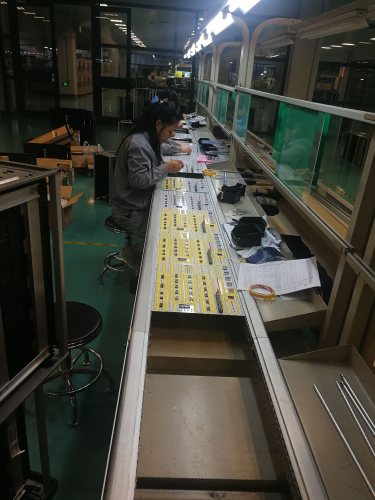1. Structural features
The experimental box is composed of an all-aluminum alloy box, a high-performance linear power supply, a common digital analog signal source and an experimental circuit. Among them, the experimental circuit board adopts a completely independent modular structure, and the experimental module circuit is selected according to the students of different levels, and the modules can be disassembled flexibly. There are six types of experimental circuit modules for users to use: breadboard experimental modules; experimental modules composed of discrete components; experimental modules composed of small and medium integrated circuits; digital CPLD experimental modules, etc. This platform is suitable for all Experimental and innovative design of courses such as "Digital Electronic Technology", "Digital System Design", "Analog Electronic Technology", "Electronic Circuit", "EDA Technology Application" and other courses for electrical and non-electrical majors.
2. technical indicators
1. Working power supply of the experiment box
Input: AC220V±10%, 50HZ.
Output: 1. ACV 6V, 14V, dual 7.5V with center tap (for rectification and filtering experiments).
2. DCV +5V/2A, ±12V/0.5A all have short-circuit protection, and the +5V power supply has a short-circuit alarm and reverse protection circuit.
3. DCV 1.2V~12V/1A is continuously adjustable.
2. Commonly used digital and analog signal sources
1) DC signal source: Dual -5V~+5V, -0.5V~+0.5V continuously adjustable.
2) Provide two sets of positive and negative single pulse generators and two sets of edge level generators.
3) 10HZ-10KHZ continuously adjustable clock circuit.
4) 4KHZ~1MHZ fixed pulse 9-speed output.
5) 12-way digital input and display circuit, with protection function at the input end.
6) 12-channel switching value output circuit, output standard TTL high level and TTL low level, the output end has a display circuit, which can directly display the output state of the switching value, and the output end has a protection function.
7) 6-digit seven-segment LED common anode digital display with built-in CD4511 BCD code decoding circuit.
3. Experimental circuit module
1) Rectification filter and voltage stabilization circuit module
2) Single tube, double tube and emitter follower amplifier circuit
3) Differential amplifier and series regulator module
4) Power amplifier integrated circuit module
5) Operational amplifier circuit module 1
6) Operational amplifier circuit module 2
2) Trigger function verification and application
7) Integrated counter and application
8) Application of registers and shift registers
9) Data selector and application
10) Integrated decoder and application
4. The connection of the experimental circuit: all signals are drawn out with self-locking gold-coated jacks (never oxidized, beautiful
Beautiful appearance), the experimental lead connection is stable and reliable.
5. Box body: aluminum alloy material, green and environmentally friendly, without any pollutants, with handles, beautiful and generous.

4. Experimental project
(1) Digital circuit
Experiment 1 Basic logic gate circuit parameter test
Experiment 2 Gate circuit logic function test and application
Experiment 3 Design of combinational logic circuit
Experiment 4 Application of medium-scale integrated devices and digital display circuits
Experiment 5 Data selector and application
Experiment 6 Trigger function and application
Experiment 7 Integrated counter and its application
Experiment 8 Application of registers and integrated shift registers
Experiment 9 555 timing circuit and its application
Experiment 10 D/A, A/D Converter
(2) Analog circuit
1. Basic single-stage amplifier circuit
2. Two-stage amplifier circuit
3. Negative feedback amplifier circuit
4. Emitter follower
5. Differential amplifier circuit
6. Integrated power amplifier
7. Complementary symmetrical power amplifier
8. Single-phase half-wave, full-wave, bridge rectification and filter circuit experiments
9. Integrated voltage regulator circuit
10. LC oscillator and frequency selective amplifier
11. Current/voltage conversion circuit
13. Voltage/frequency conversion circuit
13. The forward and reverse characteristics of the diode
14. Input and output characteristics of transistors
15. Operational amplifier experiment
1) Analog operation circuit: ① voltage follower ② inverse proportional amplifier ③ same-phase proportional amplifier ④ inverting summing proportional amplifier ⑤ double-terminal input summing amplifier circuit
2) Integral and differential circuits: ①Integral circuit ②Differential circuit ③Calculus circuit
3) Waveform generating circuit: ① Square wave generator ② Rectangular wave generator with adjustable duty ratio ③ Triangular wave generating circuit ④ Sawtooth wave generating circuit
4) Active filter: ① low pass filter ② high pass filter ③ band stop filter
5) Voltage comparator: ① zero-crossing comparator ② inverting hysteresis comparator ③ non-inverting hysteresis comparator
6) Waveform conversion circuit


